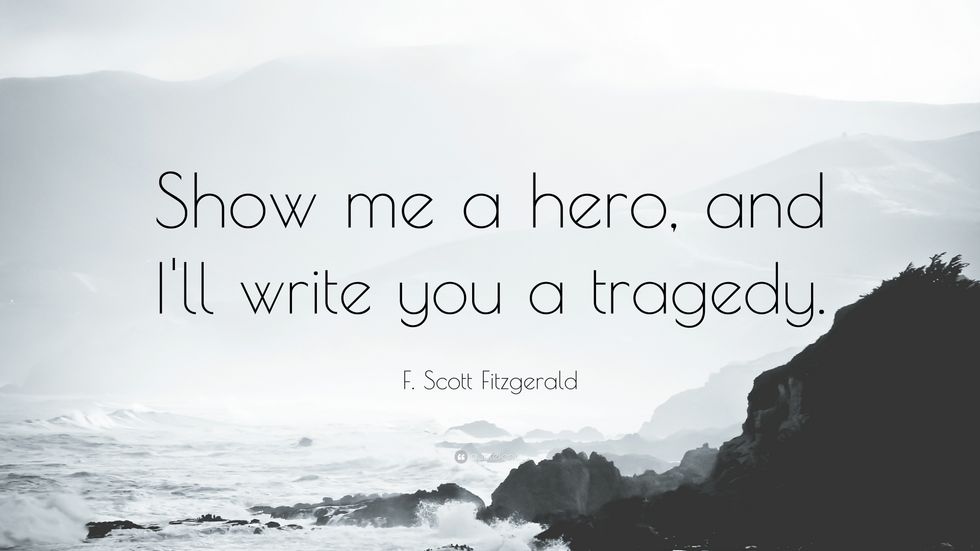In 1945, F. Scott Fitzgerald wrote in Notebook E, “Show me a hero and I’ll write you a tragedy.” As with any quote plucked from its place in literature, Fitzgerald’s words are up for interpretation by the reader. Though if you ask, many readers will tell you that Fitzgerald meant that in order to be a hero, there has to have first been a tragedy or that behind the grandeur of every hero is a tragic backstory, a struggle to the top, if you will. I think this quote points out that along with heroism comes sacrifice and the balance between the two is one to be carefully considered.
While Fitzgerald had his own motives for writing this statement, his words resonate with me in reference to our modern use of the word “hero.” I think that the idea of balance should be considered when we talk about heroism today too, but in a different sense. Whether it’s the military, the police, or celebrities, we need to find a balance in our use of the word hero, because it’s distorting our perception of these public figures.
In a 2014 article for Salon, “You don’t protect my freedom: Our childish insistence on calling soldiers heroes deadens real democracy,”David Masciotra said it best,
“The rhetorical sloppiness and intellectual shallowness of affixing such a reverent label to everyone in the military or law enforcement betrays a frightening cultural streak of nationalism, chauvinism, authoritarianism, and totalitarianism, but it also makes honest and serious conversations necessary for the maintenance and enhancement of a fragile democracy nearly impossible.”
When we begin to view entire groups of people as heroes, they suddenly become more than people. Yes, their job description or life situation may require them to be courageous and honorable, but they also become untouchable. The unfortunate fact of the matter is that these people cannot be put on a pedestal because they are just that, people, and they often make just as many mistakes as your average joe. When we use the label hero, we become more likely to ignore sexual assault in the military, race conflicts in law enforcement, and arrests and other scandals involving celebrities, to name a few examples. To use Fitzgerald’s words, these are tragedies, and when we call those committing them heroes, it becomes more and more difficult for us to recognize them as such.
So what’s the solution? Stop saying the word hero altogether? Remove the bumper stickers or signs that represent entire groups of people in the light of a hero? Maybe. Maybe we just need more open conversation without the fear of being seen as un-American or unsupportive. I don’t know the solution, but I do know that I’m taking my part in the discussion by writing this article, and I hope you’ll consider doing the same.















